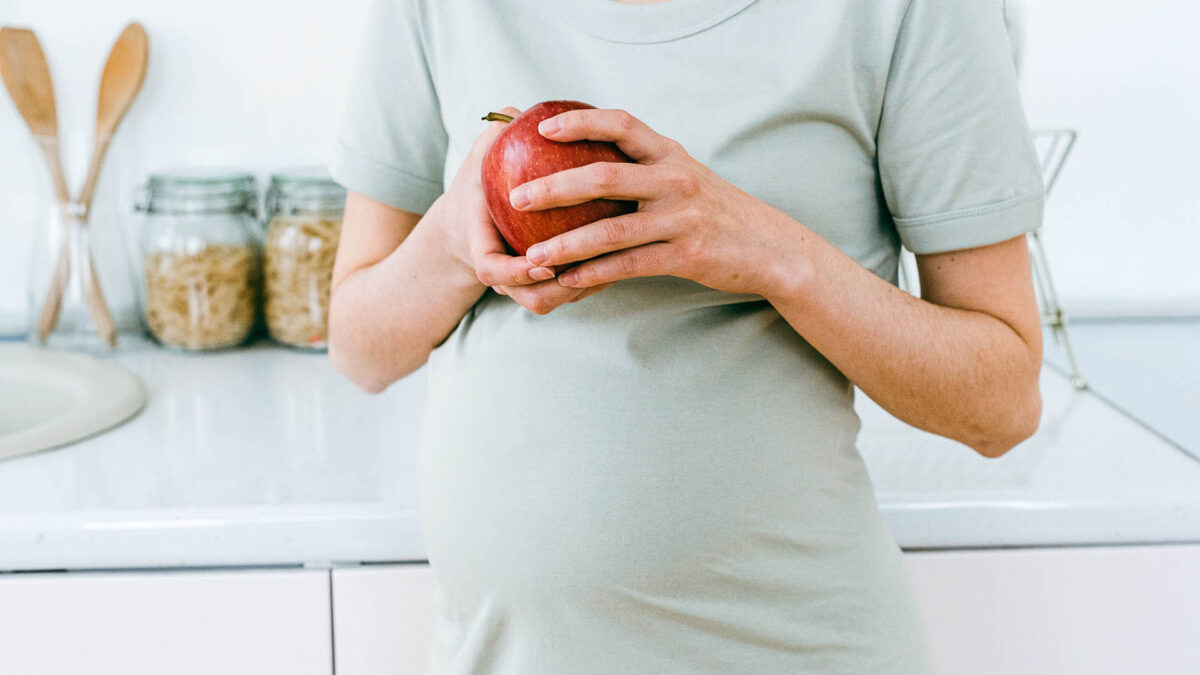Here’s a rundown of foods to avoid during pregnancy—and foods you need to grow a healthy baby.
Being pregnant means whatever you eat can have an impact on your baby. This not only means ensuring you have a healthy diet while pregnant, there are certain foods you should actively avoid too.
All the hormones and energy required to grow another human means your immune system can become lowered. A lowered immune system means you’re at higher risk of getting food poisoning. In worst case scenarios, this can cause a miscarriage, stillbirth or premature birth.
In the video below, nutritionist Amanda Muhl discusses the top foods to eat while you’re pregnant, and what do avoid. 🍊🥬
Avoid these foods when you’re pregnant
Food safety is paramount when you’re pregnant since you and baby are more susceptible to any foodborne illness. Harmful bacteria from food-related diseases such as listeria and salmonella can make you or baby very sick. Here are some foods to avoid during pregnancy:
- Cold, pre-prepared foods such as salads, deli meat, and cut, unwashed fruits
- Soft cheeses (hard cheeses such as tasty or haloumi are generally OK; cottage cheese is fine if it has been pasturised)
- Soft-serve ice-cream
- Raw eggs or anything containing raw or undercooked eggs
- Raw meat and undercooked meat
- Raw fish and shellfish
While not technically a food, it is vitally important to stop drinking alcohol when you are trying to get pregnant, and especially when you’re pregnant or breastfeeding. This is because alcohol can easily enter a baby’s bloodstream and damage the developing organs, including the brain.
The above list of foods to avoid during pregnancy is not exhaustive. If in any doubt, be sure to have a chat with your doctor.
Foods all pregnant women need
There are a few nutrients pregnant women need more of to help with baby’s development. Be sure to increase your intake of the following:
Folate
Folate (or folic acid) reduces the risk of neural tube defects in your unborn baby. Food sources of folate can be found in:
- Green leafy vegetables
- Citrus fruit
- Fortified bread and cereals
You should be consuming folate at least a month before falling pregnant and during your first trimester of pregnancy.
Iodine
Iodine is important to develop your baby’s brain and nervous system. Health professionals do recommend taking an iodine supplement when pregnant, and can be found in most pregnancy multivitamin. Foods that are high in iodine include:
- Milk
- Eggs
- Fortified bread
Iron
If you have low iron levels, you can feel tired, have poor concentration and are at an increased risk of infection. Your body needs more iron to make red blood cells when you’re pregnant, so be sure to increase your consumption of iron-rich foods.
The video below shows you the various plant-based foods that are high in iron.
How much should you eat when pregnant?
As a guide, here’s how much more food you need each trimester:
- First trimester: No extra energy needs. Eat as you usually would.
- Second trimester: 1400 extra kilojoules, equating to about two extra snacks a day.
- Third trimester: 1900 extra kilojoules, which is about three extra snacks a day.
Your nutritional and energy needs do increase to help grow your developing baby, but it’s definitely not double what you normally need.
Whatever you do, do not eat for two.
Healthy eating for a healthy pregnancy
To give your baby the best start in life, stick to a balanced diet with plenty of vegetables and whole grains at every meal, with one or two servings of fruit per day. Pay attention to how the food is prepared and avoid those that have a higher likelihood of giving you food poisoning.
Most of all, look forward to meeting your baby!
Check out our other pregnancy tips to help you have your healthiest pregnancy yet.
How helpful was this article?
Click on a star to rate it!
0 / 5. 0
Be the first to rate this post!
Mums At The Table
Related posts
Subscribe
Receive personalised articles from experts and wellness inspiration weekly!


